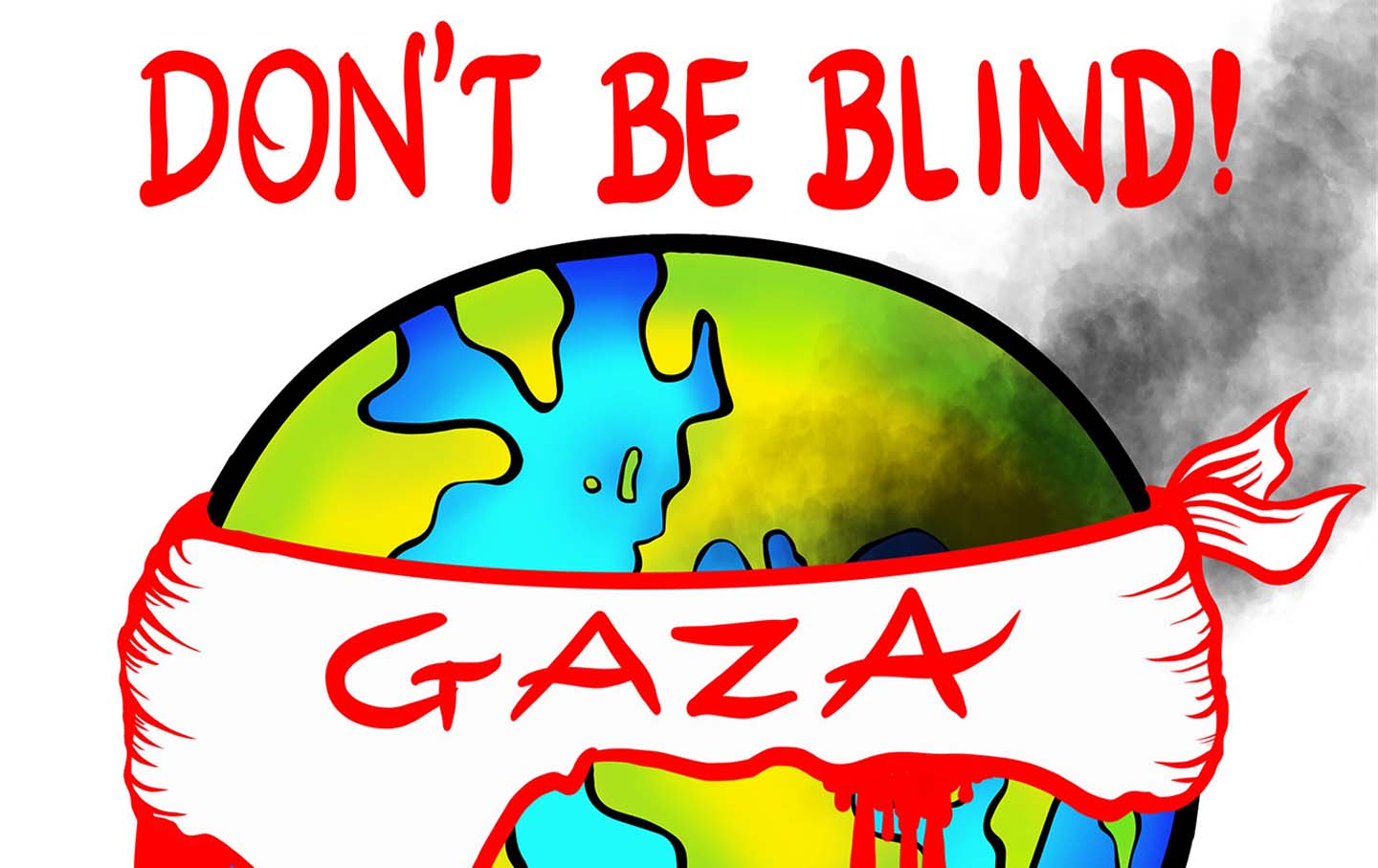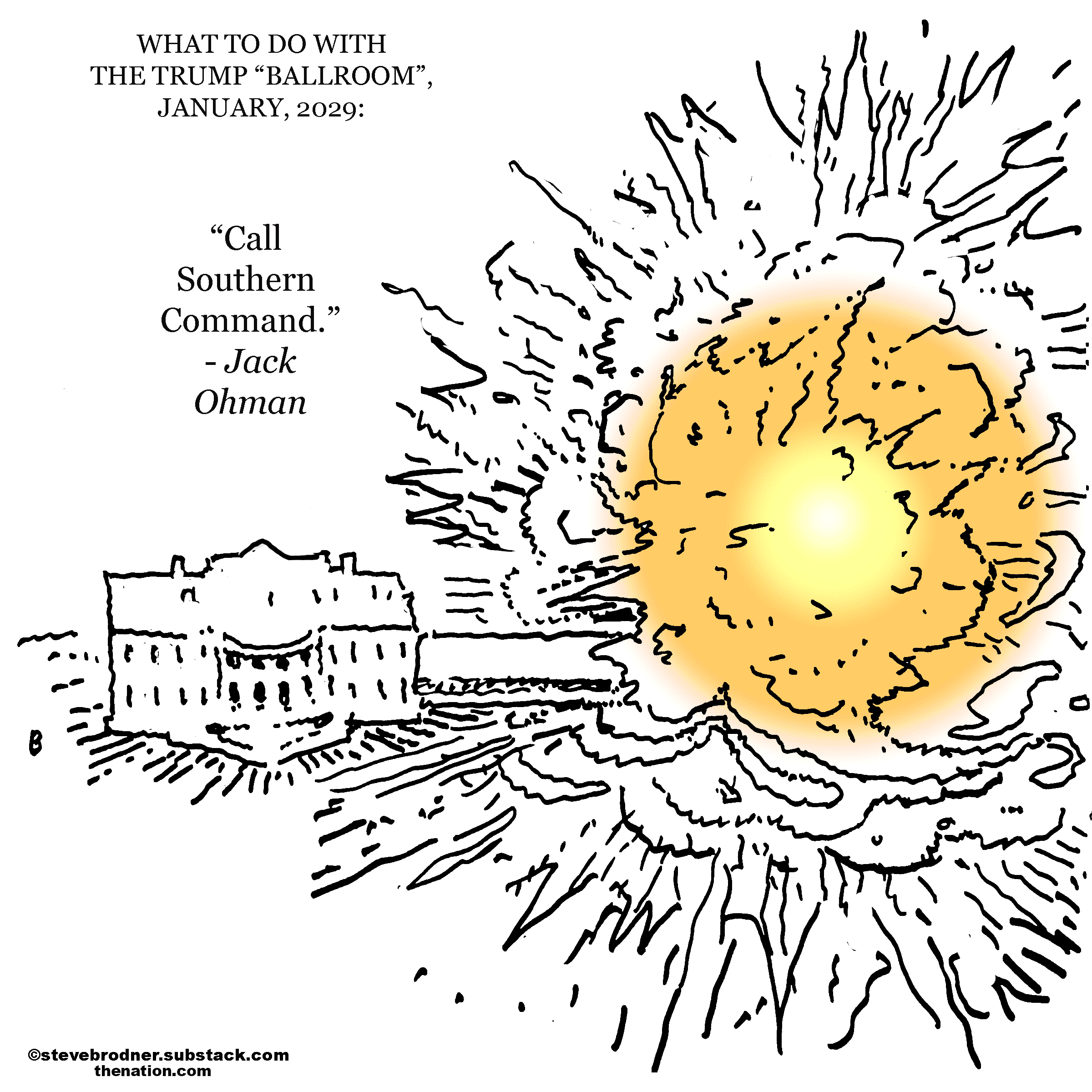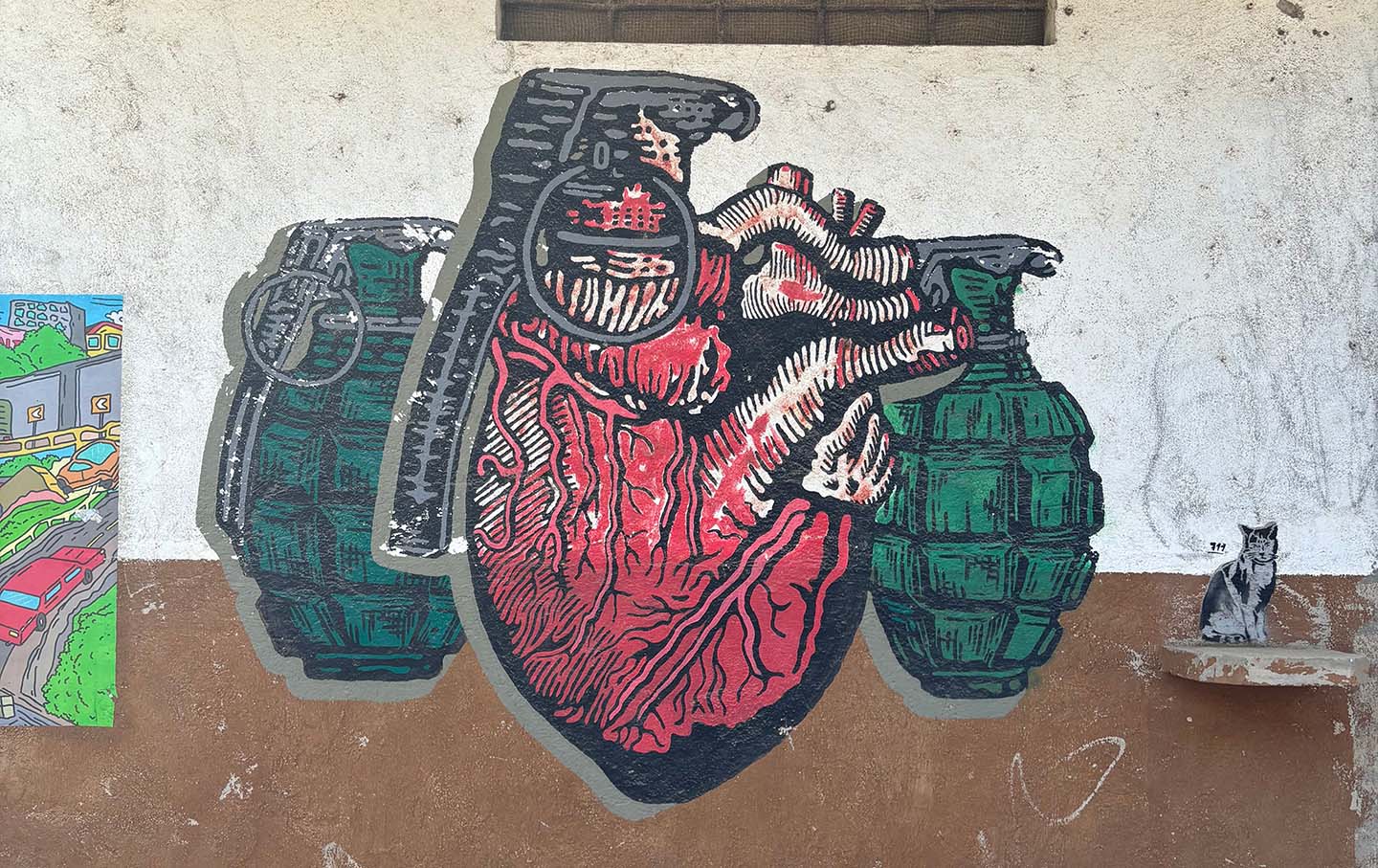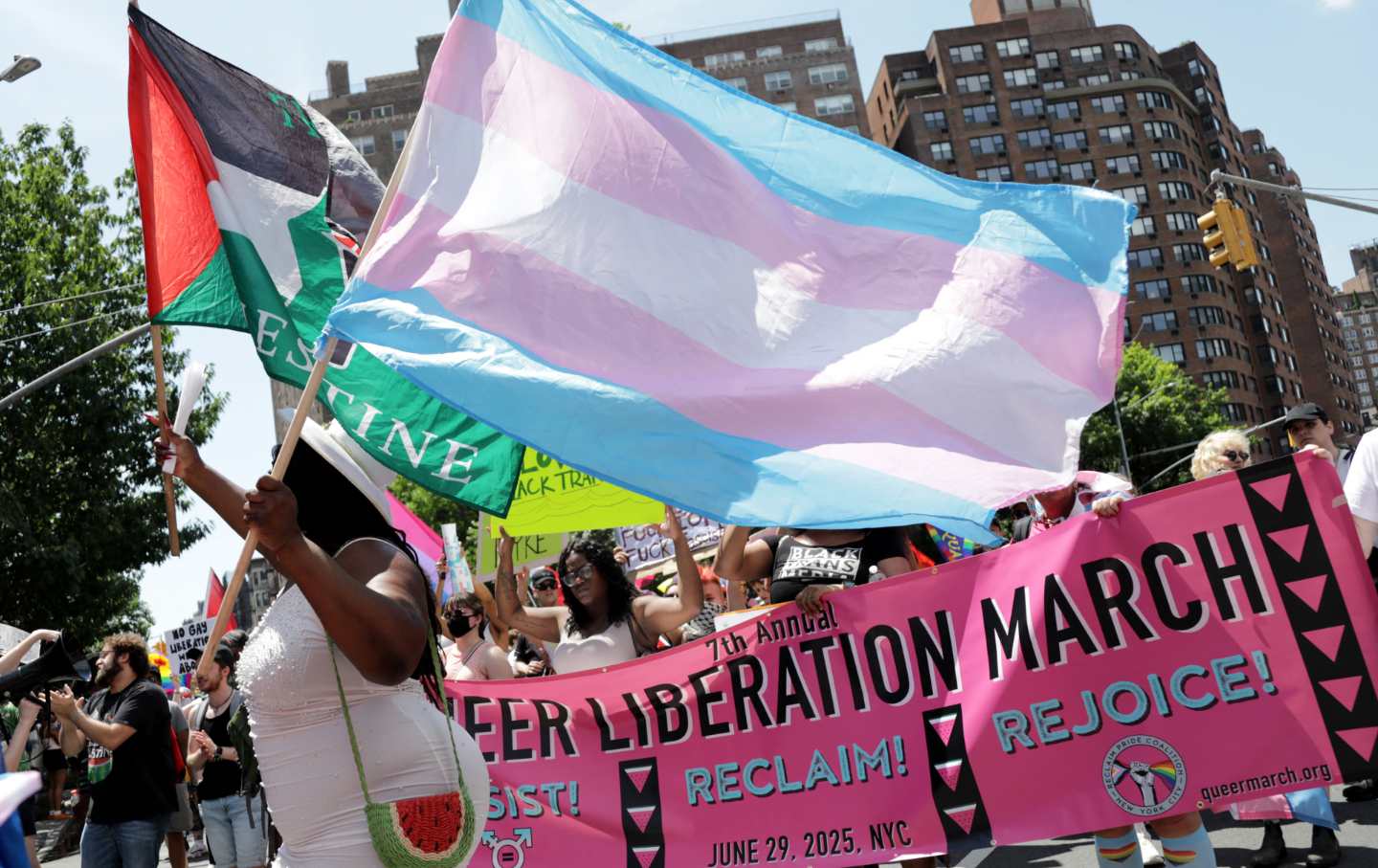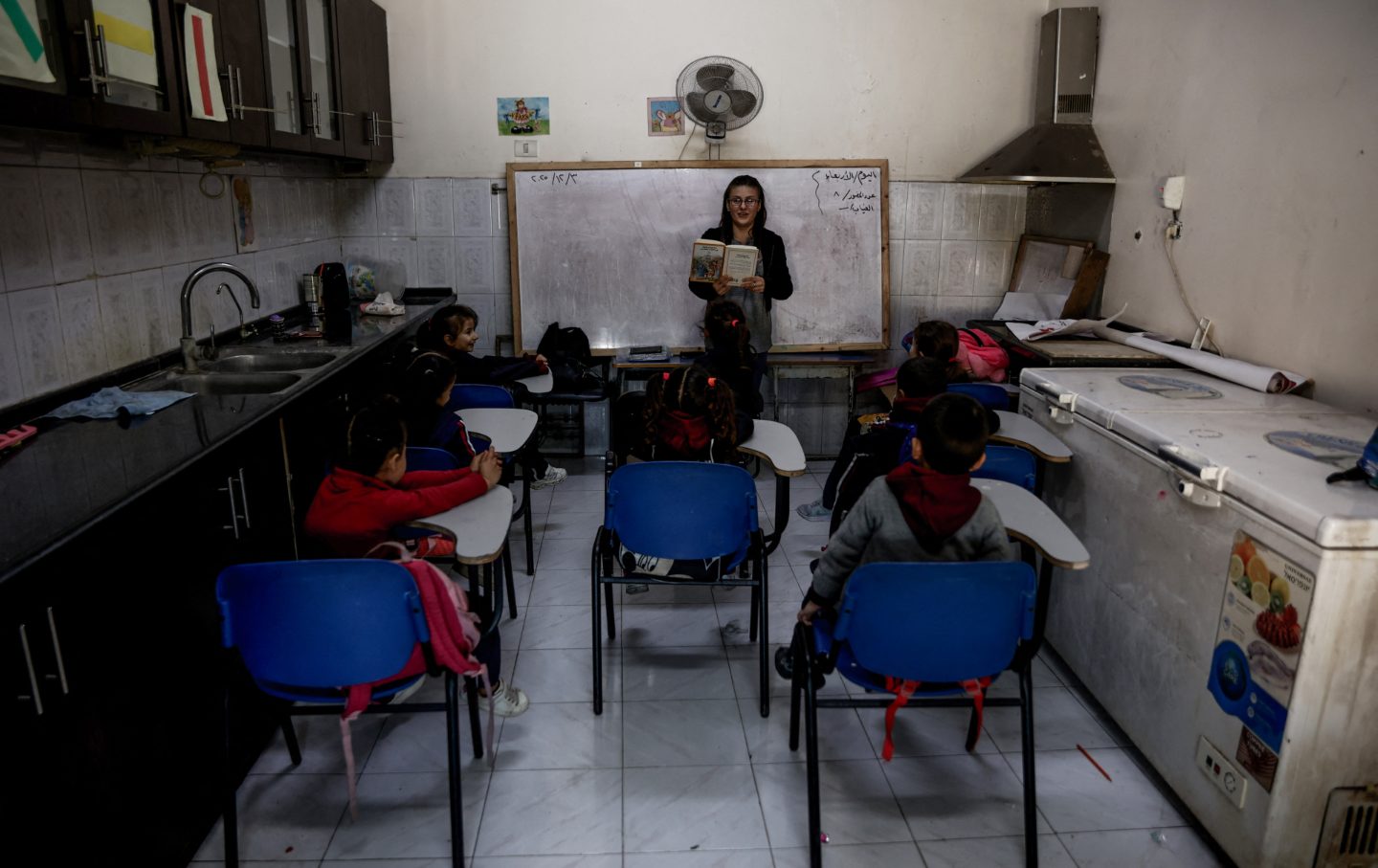Will the IOC Do Anything About the Killing of Palestinian Athletes?
Israel killed a Palestinian Olympic coach in an air strike. It turned a stadium into an interment camp. But the International Olympic Committee will not act unless we make it.
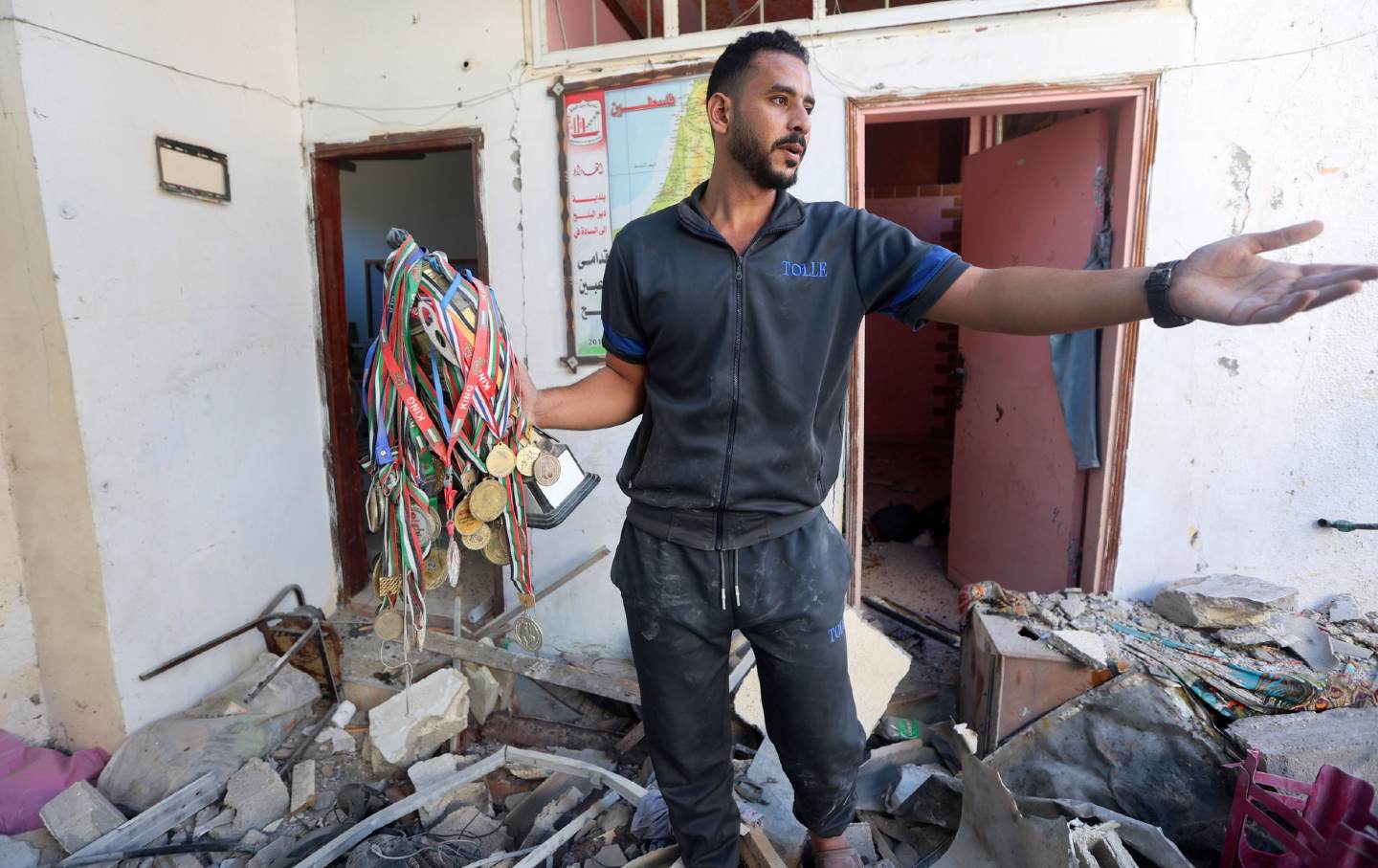
Former Palestinian football player Said al-Kurd carries recovered medals from his destroyed home where eight of his family members were killed following an Israeli shelling attack in Rafah in the southern Gaza Strip.
(Ahmed Zakot / SOPA Images / LightRocket via Getty Images)What will it take for the International Olympic Committee to suspend Israel from the 2024 Paris Summer Olympics? Would the indiscriminate killing of Palestinian Olympic coaches be enough for such a sanction? That is the question posed after an Israeli air strike on Gaza City killed Hani al-Masdar, the 42-year-old coach of the Palestinian Olympic soccer team. Al-Masdar, known in Palestine as Abu al-Abed, was a midfielder for the Al-Maghazi Club and then the Gaza Sports Club before retiring in 2018. The Palestinian Football Association announced his death on Facebook with the following statement posted by The Palestine Chronicle:
The President of the Palestinian Football Association, the family of the Palestinian Football Association, and the entire Palestinian sports family, extend their sincere feelings of sadness and pain at the martyrdom of former Palestinian football star, the general coach of the Olympic national team, Hani Al-Masdar (Abu al-Abed). Abu al-Abed rose [to martyrdom] due to the occupation aggression on the Gaza Strip for the third month, joining the constellation of football martyrs and martyrs of the Palestinian sports movement.
This is just part of a horror that has been inflicted upon the Palestinian athletic community since the start of the Israeli bombing campaign. The Palestinian Football Association says Israel has killed 88 top-tier athletes since the Hamas raid of October 7, 67 of whom played soccer. In addition, the group counts 24 administrators and technical staff who have been killed. Israeli forces killed one prominent soccer player, Ahmed Daraghmeh, 23, not in Gaza but the West Bank.
In previous decades there have been calls to ban Israel from international athletic competition in response to its jailing and targeting of Palestinian athletes as well as keeping competitors in Gaza from leaving in order to join their West Bank teammates to play overseas. When these complaints have been raised, the Israeli response is invariably that they are being held to a “higher standard” than other countries also engaged in awful acts against civilians, and this higher standard is rank antisemitism. But how could anyone short of a zealot or the Biden administration not see that the genocide settling over Gaza and the killing of Olympic coaches cannot be tolerated?
Not unlike at the United Nations, the United States would prevent any action to punish Israel and perhaps even threaten its own boycott if Israel is excluded. But the IOC has something it calls the Olympic Charter’s fundamental principles of Olympism, which says that it isn’t just another avaricious international sports body but stands for something greater. The IOC says that leading by example, social responsibility, and respect for universal ethics are the foundations of the organization. By choosing silence, the IOC reveals itself as a political, amoral, commercialist machine more comfortable celebrating oppressive, expansionist nationalism than confronting it. It is also an entity so beholden to the United States that the thought of IOC President Thomas Bach offering up even milquetoast “concerns” seems like a pipe dream.
The hypocrisy is especially obvious when one considers that the IOC suspended the Russian Olympic Committee for violating the Olympic Charter following its invasion of Ukraine and the seizure of its athletic grounds. As Jules Boykoff, my frequent cowriter and author of the forthcoming book What Are the Olympics For?, said to me, “The double standards are glaring. Why has the IOC been so conspicuously silent about Israel compared to Russia? If taking over sports facilities are a red line, why silence as Israel converts Gaza’s historic Yarmouk football stadium into an internment camp? The inconsistencies are glaring, to say the least.”
The IOC will not act, no matter how many coaches or athletes are sacrificed to Netanyahu’s dream of an Israel that stretches from the river to the sea. Our best hope is activism and disruption—letting the world know that the games cannot go on as planned as long as Gaza is in the crosshairs of US weaponry and Israeli aggression. If there is an Olympic press conference, we must, as journalists, demand answers as to why they have turned a blind eye toward the killing of athletes and coaches. If there is an event to hype the games, it should be picketed. When there are Olympic qualifying events, they should be disrupted. The coverage of Hani Al-Masdar’s death is nowhere in the sports pages of the US press. His killing will become an issue only when the people make it an issue. We cannot let people turn the page on what is happening to Gaza out of boredom, distraction, or deliberate redirection. The “celebration capitalism” of the Olympics will either be a part of that redirection or a place to highlight the ongoing carnage and demand some sense of sporting justice. These Olympics will either be a monument to ascending nationalism or a narrative of resistance.
Disobey authoritarians, support The Nation
Over the past year you’ve read Nation writers like Elie Mystal, Kaveh Akbar, John Nichols, Joan Walsh, Bryce Covert, Dave Zirin, Jeet Heer, Michael T. Klare, Katha Pollitt, Amy Littlefield, Gregg Gonsalves, and Sasha Abramsky take on the Trump family’s corruption, set the record straight about Robert F. Kennedy Jr.’s catastrophic Make America Healthy Again movement, survey the fallout and human cost of the DOGE wrecking ball, anticipate the Supreme Court’s dangerous antidemocratic rulings, and amplify successful tactics of resistance on the streets and in Congress.
We publish these stories because when members of our communities are being abducted, household debt is climbing, and AI data centers are causing water and electricity shortages, we have a duty as journalists to do all we can to inform the public.
In 2026, our aim is to do more than ever before—but we need your support to make that happen.
Through December 31, a generous donor will match all donations up to $75,000. That means that your contribution will be doubled, dollar for dollar. If we hit the full match, we’ll be starting 2026 with $150,000 to invest in the stories that impact real people’s lives—the kinds of stories that billionaire-owned, corporate-backed outlets aren’t covering.
With your support, our team will publish major stories that the president and his allies won’t want you to read. We’ll cover the emerging military-tech industrial complex and matters of war, peace, and surveillance, as well as the affordability crisis, hunger, housing, healthcare, the environment, attacks on reproductive rights, and much more. At the same time, we’ll imagine alternatives to Trumpian rule and uplift efforts to create a better world, here and now.
While your gift has twice the impact, I’m asking you to support The Nation with a donation today. You’ll empower the journalists, editors, and fact-checkers best equipped to hold this authoritarian administration to account.
I hope you won’t miss this moment—donate to The Nation today.
Onward,
Katrina vanden Heuvel
Editor and publisher, The Nation

